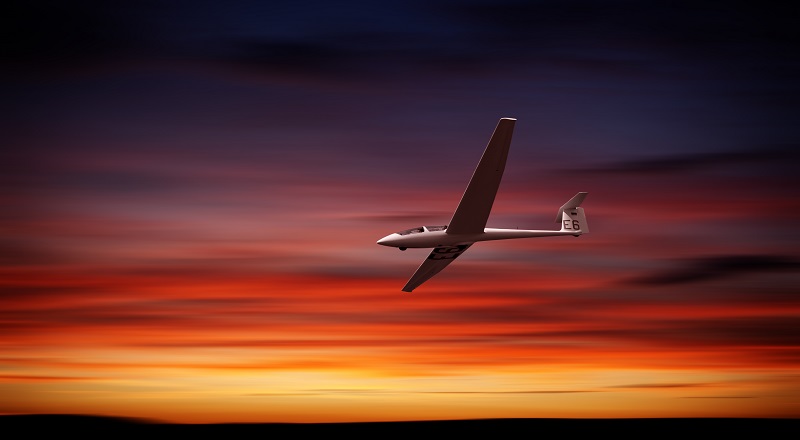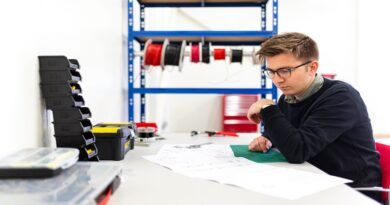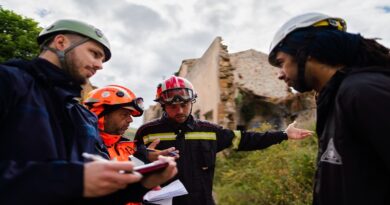Postgraduate courses in Aerodynamics
Aerodynamics is an area of great interest and answers some of the questions we can’t seem to get our head around, the main one being – how do planes fly?!
Aside from studying the relevant degrees or doing an apprenticeship, aerodynamic engineers will gain great employability prospects through achieving a chartered status (CEng) with the Engineering Council to help demonstrate professionalism and show dedication to your role.
There are a number of courses to choose from so why not start your research to find the postgraduate course that is right for you?
What is aerodynamics?
Aerodynamics is the way in which air moves around things. It is the study of properties of moving air and looks at the interaction between the air and solid bodies moving through it. For example, the rules of aerodynamics explain how planes fly. There are a few different rules of aerodynamics which will be covered in the courses below. It deals with four forces that are lift, thrust, drag and weight.
What does an aerodynamic engineer do?
The day to day duties of an aerodynamic engineer may differ from day to day. You may typically work around 40 hours a week with some long shifts and high pressure work being carried out. Typical duties may include:
- Generate and calculate performance information
- Document and maintain information gathered on performance based on flight test data
- Report writing
- Carry out different types of tests
- Present research and findings to colleagues, professional bodies, clients, suppliers etc
- Carry out evaluation work in laboratories
- Assess design equipment
- Undertake theoretical and practical research
- Test wind tunnels and flight simulators
- Provide technical advice
- Carry out aircraft configuration testing
- Assemble aircraft
- Investigate special areas such as the causes of plane crashes
- Test and make changes to equipment where necessary
- Possibly work alongside marketing and legal air safety departments
Courses
There are many courses on offer in the area across the UK. Some courses offer the opportunity to study either part time or full time. Universities may have certain restrictions in place due to Coivd-19 and may offer courses online. Courses available include:
Aeronautical Engineering
Postgraduate courses in aeronautical engineering will give students the opportunity to develop their technical skills in the area and cover topics including material sciences, digital manufacturing and management concepts relevant to the industry and in aeronautical and aerospace industries.
Aerospace Engineering
Those who study a postgraduate course in aerospace engineering will focus greatly on the innovation of aerodynamics. Students will gain skills in computational modelling and numerical techniques as well as an in-depth understanding of engineering approaches to current aerospace problems. Students can then specialise in an area of their interest, for example, flight control and simulation, advanced aerodynamics.
Other courses available that are relevant to this area include Advanced Aeronautical Engineering, Advanced Aeronautical Engineering and Space Systems and Aviation Engineering and Management, to name a few.
Entry requirements
Entry requirements may differ from course to course or university to university. Therefore, it is important to research your specific course in detail to ensure you meet the entry requirements. As these courses are postgraduate courses, you will need a bachelor’s degree. Some courses may accept a 2.2 degree while others will require a 2.1. A degree in a relevant area is desired, for example, engineering, social sciences, humanities.
Typical employers
Typical employers in this area include:
- Aerospace and aero-engine companies
- Government agencies
- Universities
- Airline operators
- Research and development organisations
Salary
The salary of an aerodynamic engineer may differ depending on your employment type, company, location and experience. Generally, salaries will start around £25,000 and with experience, as a senior aerodynamics position can earn over £50,000. The average salary of an aerodynamic engineer is believed to be around £52,550. All figures are based on estimates and are intended to be used as a guide only.
Skills and requirements
Skills and requirements in this area include:
- Excellent communication skills
- Project management skills
- Attention to detail
- Ability to collect and interpret data
- Work well under pressure
- Ability to work well with others
- Problem solver
- Awareness of safety issues
- Ability to work under pressure
- A critical thinker
- Innovative thinker
- Strong organisational skills
- Time management skills
- Desire to learn and develop career




